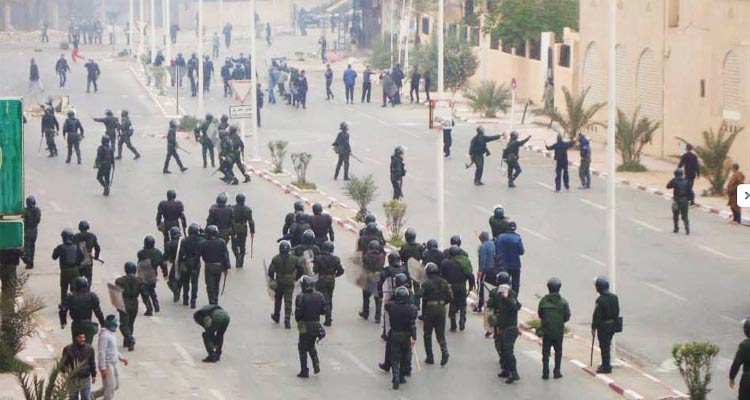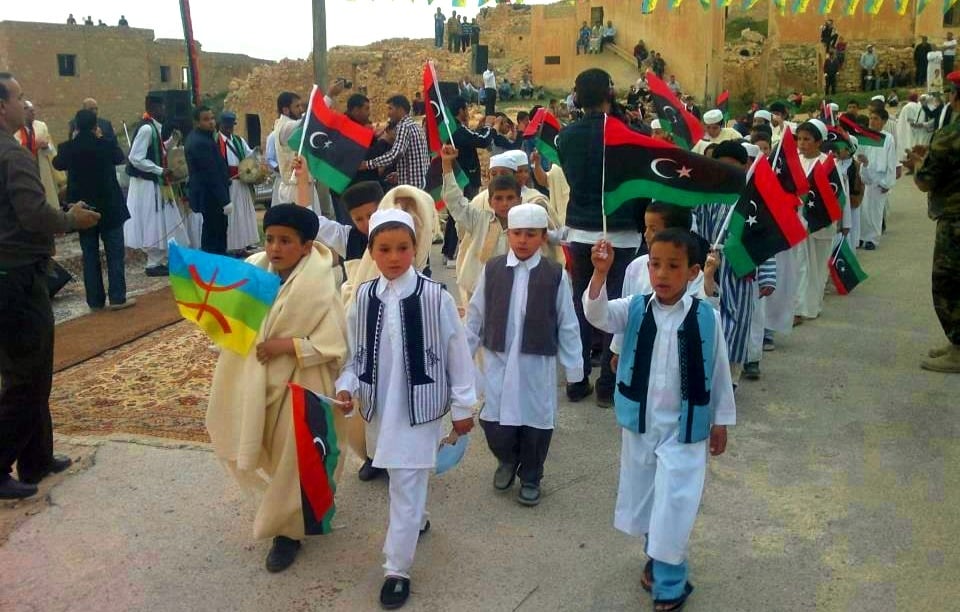Eden Almasude
July 20,2015
For the last two years, the Mozabite community has experienced countless injustices including destruction of properties and vandalism of ancient historical sites, including a Mozabite cemetery which was destroyed in December 2013. Last week, violence erupted in the city of Ghardaia when Arabs killed 16 Imazighen with firearms, one more in a series of ethnic and religiously based attacks. Another 70 people were injured, with a total of 22 dead. The oppression of the Mozabite community has manifested for years in conflict over economic grievances and destruction of homes and shops in addition to cultural discrimination as the indigenous (Amazigh) people of Algeria.
The current violence is particularly concerning as this is the first known time that Arabs are using firearms to attack the Amazigh community of Ghardaia. Approximately 3 of the dead were identified as Arabs, none of whom were killed by firearms, and these were from the aggressors who attacked Mozabite neighborhoods while Algerian police failed to act in defense of those Imazighen. In response, the Kabyle news agency Siwel condemned the way that the violence has been strategically named as “inter-ethnic conflict” rather than the murderous attacks that they were. Rather than simply being “sectarian,” giving the impression that both sides are equally culpable, there are clear aggressors and victims of the current events.
Further, the activist Dr. Kamal Eddine Fekhar called the current events a “genocide,” which may very well be the correct term given the targeted persecution of the Mozabite community by both the Arab population of Ghardaia and the Algerian state. Paradoxically, the Algerian government is responding to these attacks by acting as an accomplice and arresting Amazigh activists — including Dr. Fekhar — rather than the perpetrators.
Amnesty International called on Algerian authorities to “break the cycle of violence” and to fulfil their obligations to protect the victims of the attacks and investigate the events that have taken place. Amnesty also notes that they recognize Youcef Ould Dada as a prisoner of conscience, who is serving a 2-year sentence for publicising a video of police officers robbing a business in Ghardaia. Meanwhile, demonstrations have taken place across North Africa (Tamazgha), including Morocco and Algeria, in solidarity with the Mozabite community.
When an ethnic group is persecuted for their culture and religious practices, leading to the level of deadly violence seen in Ghardaia as a trend of increasingly lethal attacks, the international community is obligated to give its attention as an issue of discrimination and possible genocide. Amidst this violence, the Algerian state has responded only by further repression of the Amazigh community, by arresting human rights activists, and international organisations have remained largely silent.
[author image=https://pbs.twimg.com/profile_images/602591259803398144/hCu4l8-d.jpg]Eden Almasude is an Amazigh-American medical student. She is interested in health and foreign policy issues in North Africa and Latin America.[/author]


















